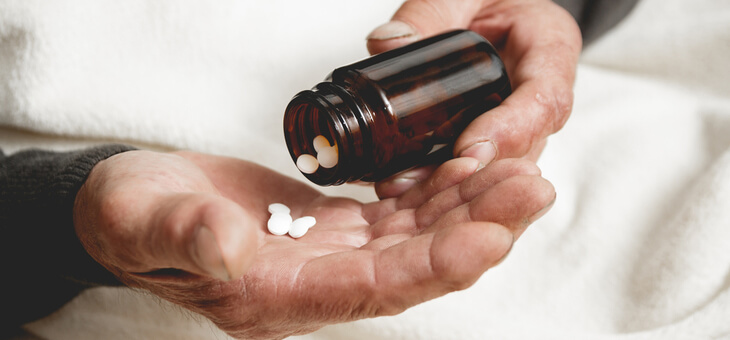A supplement called apoaequorin has been hailed as a brain saver, but scientists are sceptical of its effects and whether it actually does as claimed.
Apoaequorin is a protein found in glow-in-the-dark jellyfish called Aequorea Victoria. Lab-made apoaequorin is the main ingredient in an over-the-counter supplement called Prevagen, which claims to improve memory loss linked to ageing.
Apoaequorin is a calcium-binding protein. Research suggests calcium is connected to brain health and memory and an imbalance of calcium in brain nerve cells called neurons might prematurely ‘age’ brain cells, destroying them and disrupting signals between them.
Prevagen has been marketed with brain-boosting benefits, but experts say the apoaequorin is likely digested by your stomach before any of it actually reaches your brain.
No research outside of a small study sponsored by the supplement’s maker proves that apoaequorin, taken orally, boosts memory.
In that study, researchers claimed some of the participants who took Prevagen showed slight improvements in brain health and memory, compared to the placebo group, on only a few of the nine tests undertaken.
And those who experienced ‘improvement’ had little or no cognitive impairment in the first place. From that, researchers concluded that Prevagen could “improve aspects of cognitive function” in people with normal brain-related ageing or very mild cognitive impairment.
Other neuroscientists say the study doesn’t show any benefits for those who took Prevagen over those in the placebo group. Most don’t consider the findings of the small study to be proof of anything at all.
As to side-effects, Prevagen’s manufacturer hired two doctors to review adverse events during the study, which included headache, dizziness, nausea, constipation, oedema (swelling due to fluid build-up in tissues) and high blood pressure.
However, the doctors concluded that these side-effects were linked to other health conditions or were unrelated to using the supplement.
Read: ‘Brain fog’ during menopause is real and linked to dementia
Word-of-mouth reports from people with multiple sclerosis who took apoaequorin supplements include one person claiming they developed low blood pressure, and the other becoming depressed with suicidal thoughts.
Evidence suggests use of apoaequorin supplements is “well tolerated” for most people without health conditions who take a low dose for 90 days but has no confirmed benefits for brain health, says Doctor of Pharmacy Joshua Conrad for WebMD.
The American Association of Retired Persons (AARP) asked a group of scientists, doctors, scholars and policy experts if they would recommend the ingredient or supplement marketed for brain health after reviewing the available research.
They advised against the supplement, adding that the best way to ensure brain health was with a diet packed with healthy brain-boosting nutrients.
Read: Older Australians eating their way towards Alzheimer’s
The Alzheimer’s Association also cautions against memory-enhancing dietary supplements, saying any related claims are mostly based on very little science.
Researchers from the University of West Florida investigated the manufacturer’s claims at length.
“Their misleading claims in marketing appear to take advantage of and capitalise on the susceptible target audience of older consumers,” says their Inquiries Journal reort paper.
“The individuals targeted for this marketing are those who are older and may have issues with memory loss or cognitive ability. Thus, when presented with false claims of possible remediation, they are more susceptible to accept them as authentic … [and] can more easily fall victim to this kind of marketing.
Read: The highs and lows of Alzheimer’s research in 2021
“From the current research, it can be concluded that the oral consumption of apoaequorin likely exerts its effect as a placebo as no clear mechanism exists to alter brain function. Can a protein found in jellyfish really improve your memory? These scientists say ‘No’.”
The bottom line?
Don’t take any supplement without talking to a health professional first – even those supplements that promise everlasting brain health.
Have you heard of Prevagen? What do you think of such claims? Why not share your thoughts in the comments section below?
If you enjoy our content, don’t keep it to yourself. Share our free eNews with your friends and encourage them to sign up.

